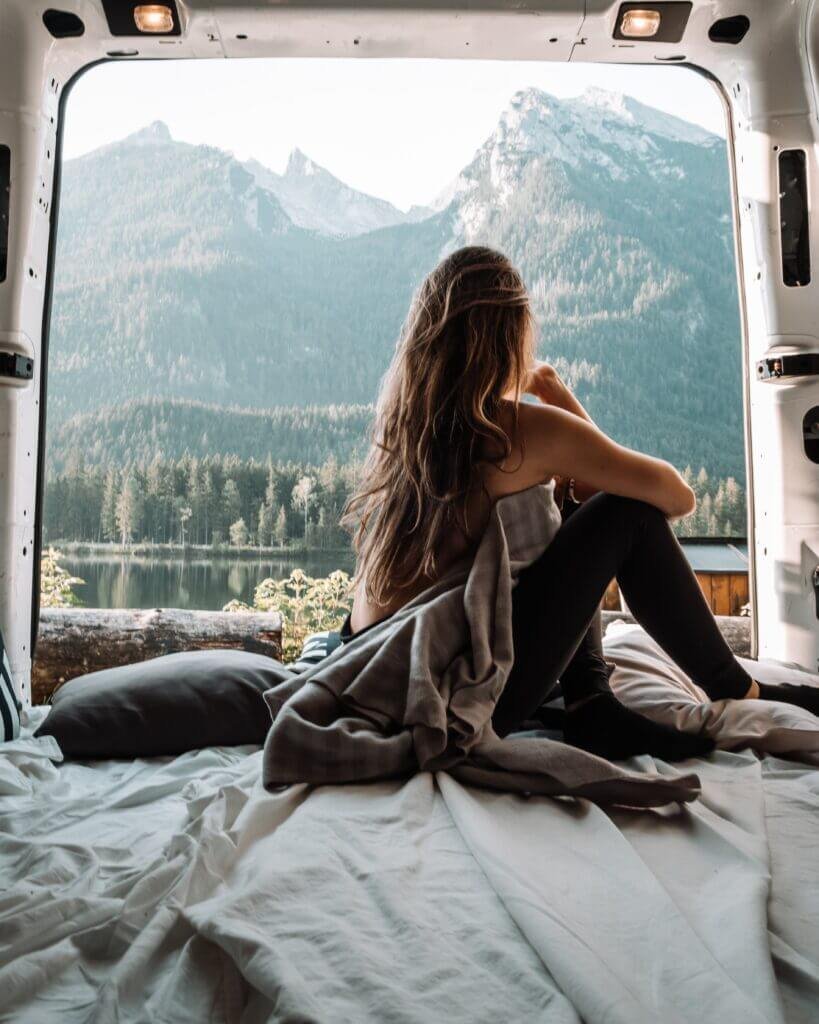Are you new to the world of camping and feeling a little overwhelmed? Don’t worry, we’ve got you covered! In this article, we will share some of the best camping hacks and tips specifically tailored for beginners like you. Whether you’re planning your first camping trip or just looking to improve your outdoor skills, these tips will help you make the most out of your camping experience. So grab your notepad and get ready to learn some useful tricks to enhance your camping adventures!

Choosing the Right Campsite
Consider the location
When choosing a campsite, one of the most important factors to consider is the location. Think about the distance from your home and the time it will take to get there. Consider whether you prefer a campsite in the mountains, by the ocean, or in a forest. The location should align with the type of outdoor activities you enjoy, whether it’s hiking, fishing, or simply enjoying the scenery.
Research campsite facilities
Before setting off on your camping adventure, take the time to research the campsite facilities. Look for campsites that offer amenities such as clean restrooms, showers, and potable water. It’s also helpful to find out if there are any picnic tables or fire pits available at the site. This information will help you plan and pack accordingly.
Check the rules and regulations
Every campsite has its own set of rules and regulations, so familiarize yourself with them before you go. Some campsites may have specific quiet hours, fire restrictions, or rules regarding pets. By knowing and respecting these rules, you’ll ensure a pleasant experience for yourself and others. Additionally, make sure to check if the campsite requires a reservation and if there are any fees associated with your stay.
Essential Gear and Equipment
Invest in a quality tent
A quality tent is a vital piece of camping equipment, providing shelter from the elements and a comfortable place to sleep. Look for a tent that is durable, weather-resistant, and easy to set up. Consider the size of the tent and how many people will be sharing it. It’s always a good idea to set up the tent at home before your trip to ensure you know how to properly assemble it.
Bring a comfortable sleeping bag
A sleeping bag is another essential item for camping. Choose a sleeping bag that is suitable for the expected weather conditions. Opt for a bag that is warm, comfortable, and appropriately sized for your body. Look for features such as a hood and insulation to keep you cozy during those chilly nights.
Pack a camping stove and cookware
Cooking over a fire can be fun, but having a camping stove and cookware can make meal preparation much easier. Choose a camping stove that is lightweight, compact, and easy to use. Additionally, pack pots, pans, and utensils that are specifically designed for camping. These items will ensure that you can cook your meals efficiently and enjoy delicious food while out in nature.
Don’t forget a water filtration system
Access to clean drinking water is crucial while camping. Rather than relying on bottled water, consider investing in a water filtration system. There are various options available, including portable filters and purification tablets. These will allow you to safely and conveniently drink water from natural sources such as rivers or lakes.
Include a camping chair and table
Having a comfortable place to sit and enjoy your meals or simply relax is important. Invest in a sturdy camping chair that offers proper support and can withstand outdoor conditions. Additionally, a camping table will provide a convenient surface for cooking, eating, or playing games. These items will enhance your overall camping experience and make your outdoor activities more enjoyable.

Packing Essentials and Organization
Make a checklist
Before packing for your camping trip, create a checklist of all the essentials you will need. This will ensure that you don’t forget anything important. Include items such as a tent, sleeping bag, clothing, food, cooking equipment, and toiletries. As you pack each item, check it off the list. This simple step will help you stay organized and reduce the chances of leaving something behind.
Pack appropriate clothing and footwear
When it comes to clothing, be sure to pack appropriate layers for varying weather conditions. Bring lightweight, moisture-wicking clothing for warm days and insulated, waterproof clothing for colder temperatures. Don’t forget to pack extra socks and comfortable footwear suitable for hiking and outdoor activities. Having the right clothing will keep you comfortable and protected during your camping trip.
Keep essential items easily accessible
It’s important to keep essential items easily accessible during your camping trip. Items such as a flashlight, insect repellent, sunscreen, and a first aid kit should be readily available. Consider packing these items in a small backpack or a designated pocket in your camping gear. This way, you can quickly access them when needed without having to search through your entire pack.
Use travel-friendly storage solutions
To stay organized during your camping trip, invest in travel-friendly storage solutions. Use waterproof bags or compression sacks to separate and protect your clothing and gear. Transparent storage containers are also useful for quickly locating items. Utilize different compartments and labeled containers to easily find what you need. These storage solutions will keep your camping gear neat, tidy, and easily accessible throughout your trip.
Preparing and Cooking Meals
Plan your meals in advance
Before heading out on your camping trip, take the time to plan your meals in advance. Consider the number of days you will be camping and the number of meals you will need to prepare. Create a menu and make a detailed shopping list based on your planned meals. By planning ahead, you can ensure that you have all the necessary ingredients and avoid food waste.
Pre-cut ingredients and pre-cook meals
To simplify meal preparation while camping, pre-cut ingredients and pre-cook certain meals at home. Chop vegetables, marinate meat, and prepare sauces in advance. This will save you time and effort at the campsite. Consider pre-cooking meals such as chili or stew, which can be heated easily over a campfire or stove.
Select quick and easy recipes
When camping, you may not have access to all the culinary tools and ingredients you have at home. Choose recipes that are simple and require minimal preparation. One-pot meals, foil-wrapped packets, and kebabs are great options for easy camping meals. Opt for recipes that use canned or preserved ingredients, as these are easier to transport and store.
Bring versatile ingredients
To minimize the number of ingredients you need to pack, bring versatile ingredients that can be used in multiple recipes. For example, bring spices, sauces, and condiments that can add flavor to various dishes. This will save space in your camping supplies while still allowing you to enjoy flavorful meals.
Clean as you go
While cooking and preparing meals at the campsite, it’s essential to clean as you go. This will prevent food odors and leftover scraps from attracting wildlife. Pack a small basin and biodegradable dish soap to wash utensils and cookware. Wipe down surfaces after cooking to maintain cleanliness and ensure a hygienic campsite.

Setting Up Camp and Campfire Tips
Choose a level and clear area
When setting up your campsite, choose a level and clear area. Clear any debris or rocks that could make sleeping or walking uncomfortable. Sleeping on an uneven surface can impact your comfort and quality of sleep. Additionally, ensure that your tent is pitched away from any potential hazards such as dead trees or loose branches.
Pitch your tent with care
Properly setting up your tent is crucial for a comfortable and safe camping experience. Before pitching your tent, clear the area of any sharp objects that could puncture the tent floor. Follow the manufacturer’s instructions for assembly and be sure to secure all stakes and guy lines. Tighten the rainfly to protect against any potential rain or dew.
Gather firewood responsibly
If you plan on having a campfire, it’s important to gather firewood responsibly. Check with the campsite’s rules and regulations to determine if you can collect firewood from the surrounding area. If allowed, gather fallen branches and small pieces of wood. Never cut or remove live trees or branches, as this can harm the environment and disrupt the natural habitat.
Build a safe and efficient campfire
When building a campfire, safety should be your top priority. Choose a spot for your fire that is clear of any overhanging branches or low-hanging vegetation. Clear the area around the fire pit of any dry leaves or debris that could catch fire. Build a fire ring with rocks to contain the fire and prevent its spread. Always have a bucket of water or a fire extinguisher nearby for emergencies.
Practice fire safety
Once your campfire is lit, it’s important to practice fire safety. Never leave the fire unattended and ensure that it is completely extinguished before leaving the campsite or going to sleep. Fully douse the fire with water, stir the ashes, and repeat the process until the ashes are cool to the touch. Respect any fire restrictions in place and use common sense to prevent accidents.
Safety and First Aid
Learn basic first aid skills
Before heading out into the wilderness, it’s important to learn basic first aid skills. Knowing how to treat minor injuries, such as cuts, bruises, and burns, can make a significant difference in an emergency situation. Take a first aid course or research online for information on how to handle common camping injuries. This knowledge will empower you to respond effectively in case of an accident.
Carry a well-stocked first aid kit
Having a well-stocked first aid kit is essential for any camping trip. The kit should include items such as bandages, sterile gauze pads, adhesive tape, antiseptic wipes, pain relievers, and any necessary prescription medications. Additionally, pack items specific to your needs, such as allergy medication or asthma inhalers. Regularly check and replenish your first aid kit to ensure it is always ready for use.
Be aware of wildlife risks
While camping, it’s important to be aware of the potential risks associated with wildlife encounters. Research the local wildlife in the area and understand their behavior and habits. Take precautions such as securely storing food in bear-proof containers or hanging it from a tree. Respect wildlife and keep a safe distance. Avoid any interactions that could potentially endanger yourself or the animals.
Protect against ticks and mosquitoes
Ticks and mosquitoes can be a nuisance while camping, but they can also carry diseases. Take preventive measures to protect yourself from bites. Wear long sleeves, pants, and socks treated with insect repellent. Use a bug spray containing DEET or other EPA-approved repellents. Consider using mosquito nets or investing in clothing with built-in insect repellent. Regularly check yourself and your camping gear for ticks and remove them promptly.
Stay Hygienic and Clean
Pack biodegradable toiletries
When it comes to personal hygiene while camping, choose biodegradable toiletries to minimize your impact on the environment. Look for products such as biodegradable soap, shampoo, and toothpaste. Avoid using harsh chemicals or antibacterial products that can harm the natural ecosystem of the campsite. Dispose of your soapy water in designated areas or scatter it away from water sources.
Maintain cleanliness at the campsite
Maintaining cleanliness at the campsite is essential for hygiene and minimizing the risk of attracting wildlife. Keep your camping area clean by picking up any trash or food scraps. Store all food securely in appropriate containers or coolers to prevent animals from being attracted to your campsite. Dispose of any garbage in designated bins or take it with you when you leave.
Use hand sanitizer and wet wipes
While camping, access to running water and soap may be limited. Bring hand sanitizer and wet wipes to maintain cleanliness. Use hand sanitizer to disinfect your hands before eating or after using the restroom. Wet wipes can also be useful for freshening up or cleaning utensils and cookware. Remember to properly dispose of used wipes in designated garbage bins.
Dispose of waste properly
Properly disposing of waste is crucial to maintaining a clean and environmentally friendly campsite. Follow the campsite’s guidelines for waste disposal. If there are no designated bins, pack out all your garbage and dispose of it properly when you have access to appropriate facilities. Never leave any trash or waste behind, as it can harm the environment and wildlife.
Weather Preparedness
Check the weather forecast
Before your camping trip, always check the weather forecast for the area. This will help you pack appropriate clothing and gear for the expected weather conditions. Be prepared for changes in weather and pack extra layers, rain gear, or sun protection as needed. Knowing the weather forecast will allow you to plan your activities accordingly and make any necessary adjustments.
Pack appropriate clothing and gear for different weather conditions
When camping, be prepared for a range of weather conditions. Pack lightweight and breathable clothing for hot weather, insulating layers for cold weather, and waterproof gear for rainy conditions. Don’t forget accessories like hats, gloves, and scarves to protect yourself from sun, wind, or cold temperatures. By having the right clothing and gear, you can stay comfortable and safe during your camping trip.
Set up a tarp or canopy for shelter
Having a tarp or canopy can provide additional shelter from the elements. Use a tarp to create extra shade during hot weather or to provide cover during rain. Secure the tarp properly to protect yourself and your gear from wind, rain, or harsh sunlight. A tarp or canopy can greatly enhance your camping experience by providing a comfortable outdoor living space.
Stay dry and warm
Staying dry and warm is essential for your comfort and safety while camping. Pack waterproof gear, including a rain jacket, pants, and waterproof footwear. Consider bringing extra towels or blankets to keep yourself warm during chilly nights. If camping in colder temperatures, use a sleeping mat or pad to insulate yourself from the cold ground. By staying dry and warm, you can fully enjoy your camping experience.
Navigation and Orientation
Bring a compass and map
When camping, it’s important to have reliable navigation tools. Bring a compass and map of the campsite or the surrounding area. Familiarize yourself with the layout and use the map to plan your routes for hiking or exploring. Having a compass as a backup can help you find your way if you become disoriented or encounter any unforeseen circumstances.
Familiarize yourself with the campsite
Once you arrive at the campsite, take the time to familiarize yourself with the area. Explore the surroundings and identify key landmarks such as trails, water sources, or emergency exits. This knowledge will help you navigate the campsite and minimize the chances of getting lost. Pay attention to any posted signs or markers that indicate important areas or restrictions.
Mark key landmarks
To ensure that you can easily find your way around the campsite, mark key landmarks. Use natural markers such as trees or rocks to indicate important areas like your campsite or the location of water sources. This simple trick can be especially helpful if you need to locate your campsite at night or in low visibility conditions.
Learn basic navigation skills
While camping, it’s helpful to have basic navigation skills. Learn how to read a map, interpret compass directions, and understand landmarks or topographical features. This knowledge will boost your confidence in navigating the campsite and allow you to venture out on trails or explore the surrounding area with ease. Practice these skills before your camping trip to become more proficient.
Fun Activities and Entertainment
Plan outdoor games and activities
Camping offers the perfect opportunity to enjoy some outdoor games and activities. Consider packing items like a Frisbee, a football, or a badminton set for some recreational fun. Set up a game of horseshoes or bring a deck of cards for some friendly competition. These activities will entertain you and your fellow campers, creating lasting memories and bonding experiences.
Include books and board games for downtime
During downtime at the campsite, it’s essential to have some form of entertainment. Pack a book or two to enjoy while lounging in a hammock or sitting by the campfire. Board games or card games are also great to have on hand for evenings or rainy days. These activities will keep you entertained and help pass the time when you’re not exploring the great outdoors.
Stargaze and identify constellations
One of the most magical experiences while camping is stargazing. Take advantage of the clear night skies and spend some time identifying constellations. Bring a star chart or use a stargazing app on your phone to learn about the different stars and their stories. Stargazing is a calming and awe-inspiring activity that allows you to appreciate the beauty of the night sky.
Capture the memories with a camera
Lastly, don’t forget to bring a camera or phone with a good camera to capture the memories of your camping trip. Take photos of the breathtaking landscapes, fun activities, and candid moments with your friends and family. These photos will serve as a reminder of the incredible time you had while camping and can be shared and enjoyed for years to come.
Camping is a wonderful way to immerse yourself in nature and experience the great outdoors. By considering the location, researching campsite facilities, and checking the rules and regulations, you can choose the right campsite that suits your preferences and needs. Investing in quality gear and equipment, packing essentials and organizing them efficiently, and knowing how to prepare and cook meals at the campsite will ensure a comfortable and enjoyable camping experience. Remember to prioritize safety and first aid, stay hygienic and clean, and be prepared for different weather conditions. With proper navigation skills and some fun activities and entertainment, your camping trip is bound to be a memorable adventure. So get out there, connect with nature, and create lasting memories!


